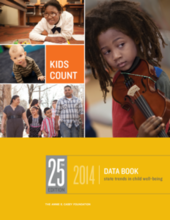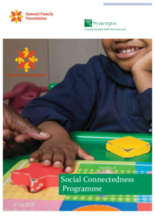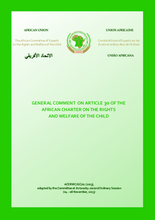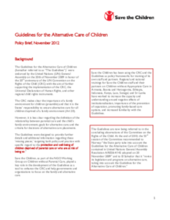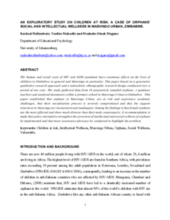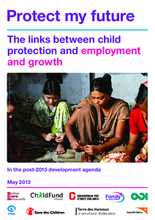Displaying 371 - 380 of 505
The KidsCount Data Book for 2014 is produced by the Annie E. Casey Foundation. It is the 25th edition of this data book, which measures state trends and demographics in child wellbeing in the United States.
This report is based on a synthesis of eight assessments of the implementation of the Guidelines for the Alternative Care of Children (“the Guidelines”) in Benin, Gambia, Kenya, Malawi, Tanzania, Togo, Zambia and Zimbabwe.
This report, commissioned by the Ministry of Gender, Labour and Social Development of Uganda and supported by UNICEF, presents findings from an analysis on child poverty in Uganda, undertaken by the Economic Policy Research Centre.
This report describes the Social Connectedness Programme and the three strands of research that inform it. The report defines social connectedness and social isolation and explains the benefits of social connectedness.
The African Committee of Experts on the Rights and Welfare of the Child (ACERWC) held its twenty-second Ordinary Session from 4-8 November 2013 and issued its first General Comment on the African Charter regarding the rights and welfare of children of incarcerated and imprisoned parents and primary caregivers.
This policy brief by Save the Children introduces the background, goals, and guiding principles of the Guidelines for the Alternative Care of Children endorsed by the UN General Assembly on the 20th of November 2009 while also explaining why family-based care is a preferred care arrangement over institutions. Furthermore, it suggests policy and practice recommendations to further protect children without appropriate care and strengthen families and communities.
The study gathered data from 16 purposively sampled orphans, 4 guidance teachers and analysed documents within a primary school in Masvingo Urban in Zimbabwe.
Oxford Policy Management has conducted two rounds of qualitative evaluations of three poverty-reduction and human development programmes run by the BOTA Foundation in Kazakhstan: the Conditional Cash Transfer (CCT) Programme, the Social Services Programme and the Tuition Assistance Programme. Each report produced by Oxford Policy Management includes a description of the methodology and results of the fieldwork as well as conclusions and recommendations.
This article describes the historical background and current situation of the child welfare system for children without parental care in Poland.
This paper was commissioned by Family for Every Child and is part of an inter-agency series on the links between child protection and major development goals. This report focuses on the links between child protection and economic growth.

